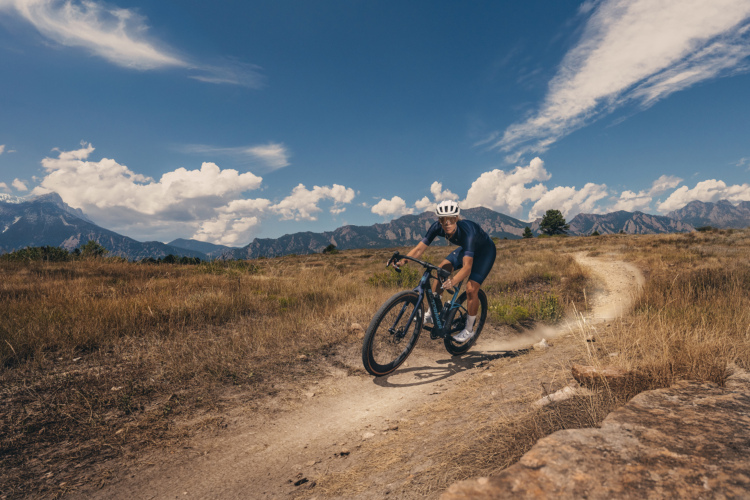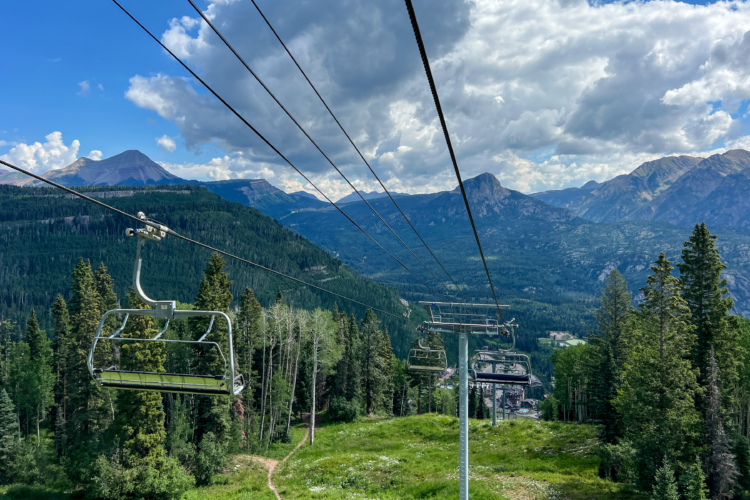
March is a particularly important time for the bike industry. Spring is near, brands are launching new product, and consumers are just as eager to spend money and get onto the trails with a new bike or gear. Bike shops fill with tune-up requests and start to hire seasonal help for the influx of business, and local economies prepare for gobs of tourists.
But, this March when coronavirus started to become a clear threat to the US, the bike industry started to pump the brakes. Sea Otter rescheduled the annual festival from April until October, bike brands cancelled product launches, and the UCI and the EWS have cancelled or postponed several of their races.
Not only has travel been on hold for everyone, Americans, like the rest of the world have been ordered to stay home. Many have lost their jobs and are hanging onto the money they do have, and that means people are less likely to spend money on things that aren’t an absolute necessity.
For small business owners who make a living off bike-related services, things have never been more uncertain.
“How do you make anything work if there are no visitors?” says Kate Gates, the business manager for Mulberry Gap, located in Ellijay, Georgia.
Mulberry Gap is a centralized base camp for mountain bikers in the Chattahoochee National Forest. Instead of visitors staying in an isolated hotel in a destination, the resort has lodging, camping, home-cooked meals, shuttles to surrounding trail networks, and guided tours.
March is when business usually starts picking up for Mulberry Gap, and after an early end to the 2019 season because of heavy rain, this years’ opening season was vital. So far, Gates says that they’ve had somewhere between $10-12,000 in cancellations and she doesn’t see the trend slowing down soon.

“I imagine the phone will continue to ring with people jumping ship.”
For businesses like Mulberry Gap, with rules that were slow to roll out, they were stuck in a catch-22, wondering if they should shut down to help stop the pandemic and encourage people to stay home, or remain open with new rules in place to bring in any income they can.
“Every day, 25,000 times a day, I ask myself ‘are we just more of the problem?’ And yes, everybody is the problem. Anyone that’s not at home and only interacting with their family is a problem.”

While Mulberry Gap weighed the option of staying open or closing, they increased cleaning on heavy touch items, like door handles and credit card readers. They started limiting how many people could get into a shuttle, but it wasn’t a big problem since so many visitors had already canceled their stay.
As of March 24, two days after we spoke with Gates, Mulberry Gap decided to close for at least a week, and that could go even longer. In the meantime, they’ve been updating their social media and letting followers know that if they can, it’s helpful to book a future trip right now, or buy a shirt online. They have a total staff of around eight or nine people at any time, but Gates isn’t sure yet how the pause in business will impact employees.
For freelance bike industry photographer Paris Gore, his own business has gone from being whisked away from his home in Washington state for shoots, to a standstill, and asking followers to consider buying prints if they can.
“My business went from a full on busy month to a dead stop with crickets chirping. It’s pretty unknown right now. If events get canceled and things keep going the way they are, I might not have anything to shoot for five months.”
About 80% of Gore’s work is based around traveling to shoot events, product launches, or for commercial photography. He’s hoping that he can still photograph products from home in Washington, but even that could be a stretch. Freelancers, especially photographers, tend to be very vulnerable in times of economic downturn.
“We can’t qualify into unemployment benefits, aren’t on salary, and when things go south with the economy, companies slash marketing budgets [and] photographers are the first to lose work,” says Gore.
Gore runs a packed schedule in the summer and relies on savings to get him through winter until the season picks up again. He thinks his savings will last through March as it usually does, but who knows how long the national shutdown will last.
“And even if I do pull a job together in May, it could be another 30 days until I get paid. So, it’s really a tricky time, in short. But, it’s going to be alright. Freelancers are usually pretty savvy at being creative to find work so I imagine things will sort out.”
Democrats and Republicans slapped around the largest economic relief package in American history over the past week, which would make loans available to small businesses, and includes freelancers, gig workers, and the self-employed for unemployment compensation. The bill finally passed the Senate today.
Amidst the national shutdown, federal and local governments have had to determine which businesses are “essential” and which ones are “non-essential.” Grocery stores, hardware stores, and restaurants with take-out service have been given an essential status in most places across the U.S. Other services like liquor stores, marijuana dispensaries, and bike shops have been operating in a grey area. What is essential for some is not essential for everyone.
Levi Teal, owner of Yawp! Cyclery in Edgewater, Colorado has been trying to keep his shop open to the community, but his means of operations are changing by the day. Teal remembers listening to a podcast during the second week of March and realized that coronavirus was going to be big. Later that week he started combing through the shop’s lease and insurance policy.

Major cities started shelter-in-place orders and those spread to other cities following the virus. Teal has been able to keep working, amidst strengthening quarantine measures all over Colorado. So far, he hasn’t been able to tell if there’s been a big change in business due to the virus, or if it might be slow because of the fluctuating spring weather.
Yawp has been allowing one person in the store at a time and having others wait outside. They’re encouraging customers to call before visiting and to make an appointment before dropping off a bike. On top of that, they are disinfecting hourly, have stopped accepting cash, and they are offering to ship bikes to customers for the first-time ever.
The customers have been rolling with the punches, says Teal. “It seems like our customers — at least those who’ve been vocal — don’t feel we’ve increased their risk and appreciate both the uncertainty of our future as well as our maintaining their bikes when they need them to get around or mitigate stress.”
Like Gore and Mulberry Gap, the timing of the outbreak for Yawp! is far from ideal. Teal is worried about supply chain issues, but right now doesn’t have the option to stock up on things they might need as the pandemic continues. Slow winter months have taken a toll on their savings and the store’s credit was already maxed out bringing 2020 product to their shelves.
The situation is a conundrum and one that Teal, like others, doesn’t have the right answer for.
“Earlier this week I had a ride that repaired my own sanity, so I understand on a very personal level how important it is to keep people riding during this pandemic,” he says.
“I’ve always believed that what we do in bike shops is important, and that hasn’t changed in the last couple of weeks. However, given the circumstances it feels something like playing Russian Roulette — any customer or staff member could walk through the door both contagious and asymptomatic. So while it still feels like we are doing something good and necessary, it also feels a bit ominous and scary at the same time.”










0 Comments